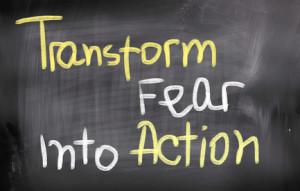 When we are feeling painful or uncomfortable emotions, the last thing we tend to want to do is to confront them. We want to run away from them, find distractions, bury them deep down until they “go away.”
When we are feeling painful or uncomfortable emotions, the last thing we tend to want to do is to confront them. We want to run away from them, find distractions, bury them deep down until they “go away.”
Enduring our emotions is tough, yet it is freeing. Your emotional responses to situations do not leave your body or your mind without confrontation. The emotions we feel exist because they are adaptive to our existence, and that is the fundamental aspect to understand. Emotions warn us of what is going on around us. Fear, anxiety, depression, even. They all exist ultimately for our survival. Sometimes, these emotions can become seemingly out of control and overbearing, or occur out of context. It can be especially compelling to want to avoid them when they get to this point, and even more so in the case of specific phobias, anxiety disorders, and other emotional disorders. No matter what the case, the goal is to confront our emotions, not run away from them. Why? Because we can’t change or control our emotions, they are inevitably part of the human existence; but confronting them will teach us how to accept and live peacefully with them. Remember, we can’t control our emotions, but our emotions can control us, and that is when it can get out of hand.
 Just like when we are experiencing positive emotions like happiness, we need to become mindful and present when we are experiencing uncomfortable emotions. What do you feel when you become incredibly anxious? Do you feel a tingling sensation? An uneasy feeling in your stomach? Is it almost crippling? That energy does not leave your body by suppressing it, or finding distractions. Distractions are just another form of avoidance. Just as we can see in phobias, avoidance of the feared situation only reinforces the fear, creating more and more distress that carries on.
Just like when we are experiencing positive emotions like happiness, we need to become mindful and present when we are experiencing uncomfortable emotions. What do you feel when you become incredibly anxious? Do you feel a tingling sensation? An uneasy feeling in your stomach? Is it almost crippling? That energy does not leave your body by suppressing it, or finding distractions. Distractions are just another form of avoidance. Just as we can see in phobias, avoidance of the feared situation only reinforces the fear, creating more and more distress that carries on.
Your emotions influence your thoughts and behaviors, and we need to become mindful of all three of these. When you are experiencing an emotional experience, become an objective observer of your emotions. Stop and ask yourself: why am I feeling this way? What triggered this? What sensations am I feeling? Be honest with yourself. If you are feeling afraid or anxious, admit it to yourself, and then remind yourself that emotions are okay to feel. Feel your feelings as hard as you can, and focus on your breathing to ground you in the moment. That closing in feeling in your chest when you are anxious, the thought of “I need to get out of here.” Address those things, and accept that you are feeling them. With time, confronting these emotions will only become less and less scary.
Becoming mindful of our emotional experiences takes a lot of practice, and there is a lot to learn, but it comes down to three important steps:
- Understand. Ask yourself why you are feeling the way you are. What is happening in the environment around you that is causing this emotional response?
- Identify. Identify the emotions you are feeling in response to the trigger, and what physical sensations you might be feeling as well as thoughts you may have.
- Release. It actually takes a lot more work to stuff your emotions down than it does to release them. Release your emotions, of course in a way that is not hurtful to you or others. If you need to cry, cry.
With every emotional experience, concentrate on feeling your feelings and acknowledging all thoughts and emotions. The point of learning to manage anxieties and fears is not to eliminate those feelings from our lives, but to learn about them, expose ourselves to them, and learn to live peacefully with these emotions.
__________________________________________________________________________________________








Leave A Comment